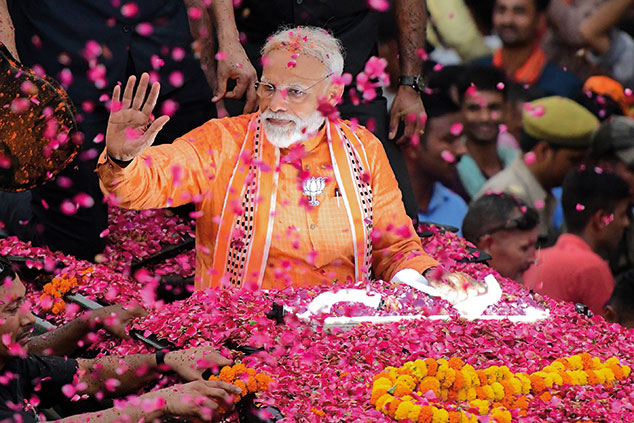
When Narendra Modi won a landslide victory in India’s general election in May, stocks quickly surged to a new high. Modi and his Bharatiya Janata Party (BJP) are widely seen as more business-friendly than the opposition, and investors hoped that a larger majority would allow the prime minister to speed up the economic reforms that he promised when he won a first term in office in 2014.
Unfortunately, Modi’s most decisive move since his re-election has prioritised a different side of his agenda. At the beginning of August, the government revoked the special constitutional status that applied to Jammu and Kashmir in northern India, which previously gave this state a degree of administrative autonomy. Although this was in the BJP’s manifesto and has been a long-standing goal for the party, it was a controversial decision, since Jammu and Kashmir is an extremely sensitive region both domestically (it is India’s only Muslim-majority state) and internationally (it lies on the border with Pakistan and China and includes several areas held by one country but claimed by another).
The area has problems that defy easy solutions – including a long history of religious violence and abuses by the security services – and require careful handling. So the government’s decision to push ahead with this change reawakened fears about Modi’s authoritarianism and his increasingly overt embrace of Hindu nationalism (an ideology that holds that India is the Hindu homeland and people of other faiths can live there only on sufferance).
For non-partisans, there has always been a trade-off to having Modi in power: the expectation that his economic reforms will help India develop faster is set against doubts about the impact of his other views and policies on religious tolerance and stability. Serious questions about this go back almost two decades, to his controversial record as chief minister of Gujarat from 2001 to 2014. Supporters argue that his decisions there helped deliver strong growth in the state during his time in office, but critics say he was at least partly responsible for inflaming an appalling outbreak of violence between Hindus and Muslims in 2002 that left hundreds, possibly thousands, dead. The Jammu and Kashmir decision has reawakened these concerns about his judgement on social and religious issues, just as his economic competence is coming under greater scrutiny.
A very mixed record
For all the talk of India’s recent success, the reality is Modi’s economic achievements in the last few years are scanter than his supporters claim. On the plus side, there is the introduction of a new national goods and services tax – a reform that is rather more totemic than it sounds, because it helps reduce some of the barriers to trade between states by doing away with a hotchpotch of different sales taxes and duties imposed by regional governments. A new bankruptcy code also aims to curb the problem of heavily indebted companies that continually fail to pay their creditors.
Subscribers can read it in the digital edition or app